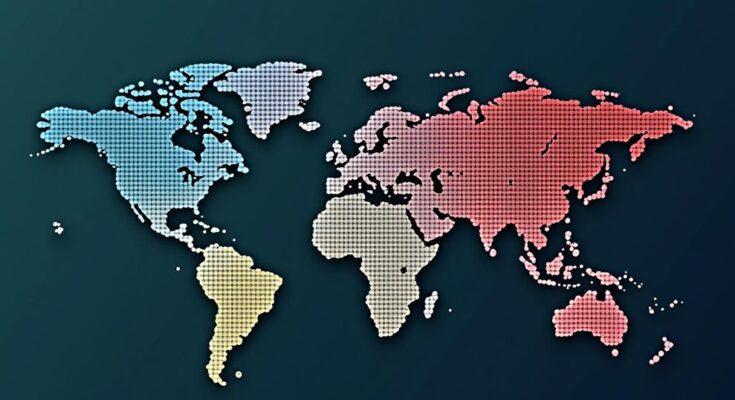The Freedom on the Net report reveals that Myanmar and China have the worst internet freedom globally, with a continuing decline for the 14th year. Kyrgyzstan shows the sharpest decline due to governmental repression, particularly against online activism. Diminished protections affect 27 of the 72 countries studied, while Iceland retains its status as the freest online environment. The report also cautions against increasing government surveillance, notably in the U.S., amid ongoing electoral challenges.
According to the latest Freedom on the Net (FOTN) report released by Freedom House, Myanmar and China are ranked as having the most repressive internet freedoms globally, marking the 14th consecutive year of declining global internet freedom. The study indicates that Kyrgyzstan experienced the most significant decline due to increased governmental restrictions under President Sadyr Japarov, who has implemented actions to stifle online activism and inhibit digital media communication. Notably, the Kyrgyz government shut down the investigative media outlet Kloop, which had been reporting on severe allegations, including torture by authorities. The report highlights that online human rights protections have diminished in 27 out of the 72 nations assessed. Myanmar’s military regime, notorious for its rigorous censorship and suppression of free expression, has enacted recent measures to block access to virtual private networks (VPNs), making it increasingly difficult for citizens to evade restrictions. China continues to maintain its stringent policies, governed by its so-called “Great Firewall,” which serves to isolate its citizens from external information considered threatening to the ruling Communist Party. In response to the report’s findings, a spokeswoman for the Chinese Ministry of Foreign Affairs dismissed the claims as “entirely baseless and made with ulterior motives.” The report identifies that three-quarters of all inspected countries faced instances where individuals were arrested for nonviolent expressions, resulting in excessive prison sentences often exceeding ten years. Other nations experiencing downgrades include Azerbaijan and Iraq, where governmental suppression has escalated. Conversely, Iceland retains its title as the country with the freest online environment, followed by Estonia, Canada, Chile, and Costa Rica. Zambia shows the largest improvement in scores, indicating an enhancing landscape for online activism. Additionally, the FOTN analysis has extended to Chile and the Netherlands for the first time, both of which exhibit commendable protections of human rights online. In the United States, concerns were raised regarding inadequate protections against government surveillance, with the country garnering a score of 76 out of 100. The report notes that a significant portion of American citizens faced restricted access to reliable information amidst ongoing electoral campaigns, which shaped the online space leading up to crucial elections, including the upcoming presidential election on November 5.
The issue of internet freedom is ever more critical as governmental policies and societal conditions evolve. The Freedom on the Net report serves as a crucial measure of the state of internet freedoms globally, analyzing how political regimes impact the ability of citizens to access, share, and express information freely online. In recent years, the trend has been alarming, with reports showing that authoritarian practices are on the rise. Countries like Myanmar and China exemplify the extremes of repression, utilizing censorship to control the flow of information and stifle dissent among their populations. The ever-changing landscape of global internet freedom necessitates continuous assessment and advocacy for human rights. The decline in internet freedom reflects broader concerns about human rights and democracy, as many individuals increasingly live under regimes that curtail freedoms and violate their rights to peaceful expression. The FOTN report is instrumental in bringing attention to these issues, revealing the challenges faced by many societies in maintaining a free and open internet.
In summary, the Freedom on the Net report highlights a worrying trend of diminishing internet freedoms around the world, with Myanmar and China leading as the most oppressive nations in this regard. Kyrgyzstan’s notable drop in score emphasizes the increasing governmental suppression of dissent online, while other nations, including Azerbaijan and Iraq, demonstrate similar repressive tactics. Conversely, countries like Iceland continue to ensure robust protections for internet freedoms, standing in stark contrast to the global decline. The report serves as a wake-up call for the international community to address these critical issues and strive toward safeguarding human rights in the digital realm.
Original Source: www.aljazeera.com




